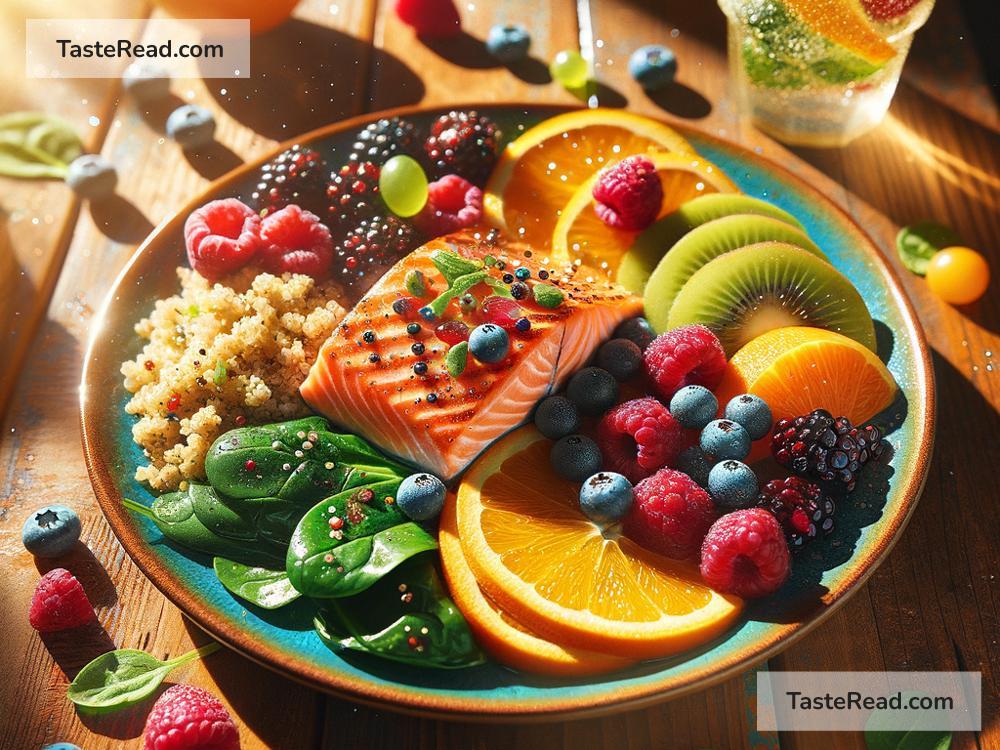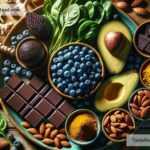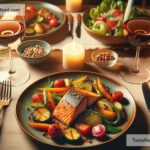Foods to Help Your Body Heal: Nutrition for Rehabilitation
Recovering from an injury, surgery, or illness can take time and effort. While rest, physical therapy, and medicine are key parts of rehabilitation, your diet also plays a big role in healing your body. Eating the right foods can speed up the recovery process, repair damaged tissues, reduce inflammation, and boost your immune system. In this article, we’ll look at foods that are packed with nutrients to help your body heal and become stronger.
The Basics of Nutrition for Healing
During rehabilitation, your body needs extra energy and nutrients to repair itself. Healing is like construction—your body is working hard to rebuild tissues, cells, and muscles. Eating a balanced diet gives your body the tools it needs for recovery. The main nutrients to focus on during rehabilitation are:
- Protein: Essential for tissue repair and recovery.
- Vitamins and minerals: Help boost your immune system and support body functions.
- Healthy fats: Reduce inflammation and provide energy.
- Hydration: Water is key for transporting nutrients and flushing out waste.
Protein: The Building Block of Healing
Protein is one of the most important nutrients during rehabilitation. It helps repair tissues after injury or surgery and aids in rebuilding muscles. Without enough protein, your body’s healing process slows down. Some excellent sources of protein include:
- Lean Meats: Chicken, turkey, and lean cuts of beef provide high-quality protein.
- Fish: Salmon, tuna, and mackerel are not only rich in protein but also contain omega-3 fatty acids, which help reduce inflammation.
- Eggs: Packed with protein, vitamins, and minerals, eggs are easy to cook and digest.
- Dairy: Milk, yogurt, and cheese provide protein as well as calcium to support bone health.
- Plant-Based Proteins: For vegetarians, options like lentils, beans, tofu, and chickpeas are excellent protein sources.
Vitamins and Minerals for Recovery
Several vitamins and minerals play a key role in speeding up the healing process. Here are some of the most important ones and where you can find them:
1. Vitamin C:
Vitamin C supports the production of collagen, which is vital for healing wounds and repairing tissues. It also strengthens your immune system. Foods rich in vitamin C include:
– Oranges, lemons, and other citrus fruits
– Strawberries
– Kiwi
– Bell peppers
– Broccoli
2. Zinc:
Zinc is essential for tissue repair and wound healing. It can be found in:
– Nuts and seeds
– Whole grains
– Shellfish
– Meat and poultry
3. Vitamin A:
Vitamin A helps repair skin and tissues and boosts immunity. Some foods high in vitamin A include:
– Carrots
– Sweet potatoes
– Spinach
– Kale
– Eggs
4. Calcium and Vitamin D:
These nutrients are especially important if you are recovering from bone damage or fractures. Calcium strengthens bones, while vitamin D helps your body absorb calcium. Foods rich in calcium include:
– Dairy products
– Leafy green vegetables (such as spinach and kale)
– Almonds
– Sardines
For vitamin D, spend some time in sunlight and eat foods like fatty fish, egg yolks, and fortified milk or cereal.
Healthy Fats for Fighting Inflammation
Inflammation is part of the healing process, but too much inflammation can slow down recovery and cause pain. Healthy fats, like omega-3 fatty acids, help reduce inflammation and support tissue repair. Great sources of healthy fats include:
- Fatty fish (like salmon and mackerel)
- Avocados
- Nuts (such as almonds, walnuts, and cashews)
- Seeds (like chia or flaxseeds)
- Olive oil
Avoid processed and fried foods, as they can increase inflammation instead of reducing it.
Carbohydrates for Energy
During rehabilitation, your body works overtime to repair itself, which means it needs energy. Carbohydrates are your body’s main energy source. Opt for whole-grain and complex carbs over sugary or processed foods. Examples include:
– Brown rice
– Oats
– Sweet potatoes
– Quinoa
– Whole-grain bread and pasta
These foods provide steady energy without causing spikes in blood sugar.
Stay Hydrated
Water might not be a food, but it’s one of the most important components of healing. When you’re dehydrated, your body struggles to transport nutrients to your cells and flush out waste. Drinking plenty of water helps your recovery process. You can also get fluids from foods like:
– Watermelon
– Cucumbers
– Soups and broths
Foods to Avoid
Some foods can slow down your recovery or increase inflammation. Try to limit:
– Sugary snacks and drinks
– Fried and processed foods
– Alcohol
– Excessive caffeine
These items can reduce blood circulation, increase swelling, and make it harder for your body to heal efficiently.
Final Tip: Listen to Your Body
No single food can magically heal you overnight, but a combination of nutrient-rich foods can make a big difference in your recovery journey. Everyone’s body is different, so pay attention to how you feel after eating certain foods. If a food makes you feel sluggish or uncomfortable, switch to something else.
Rehabilitation is hard work—and your diet is a big part of it. By eating foods that promote healing, reduce inflammation, and keep your energy levels up, you’ll give your body the best chance to recover quickly and fully. Remember: every meal is an opportunity to help your body heal and become stronger!


